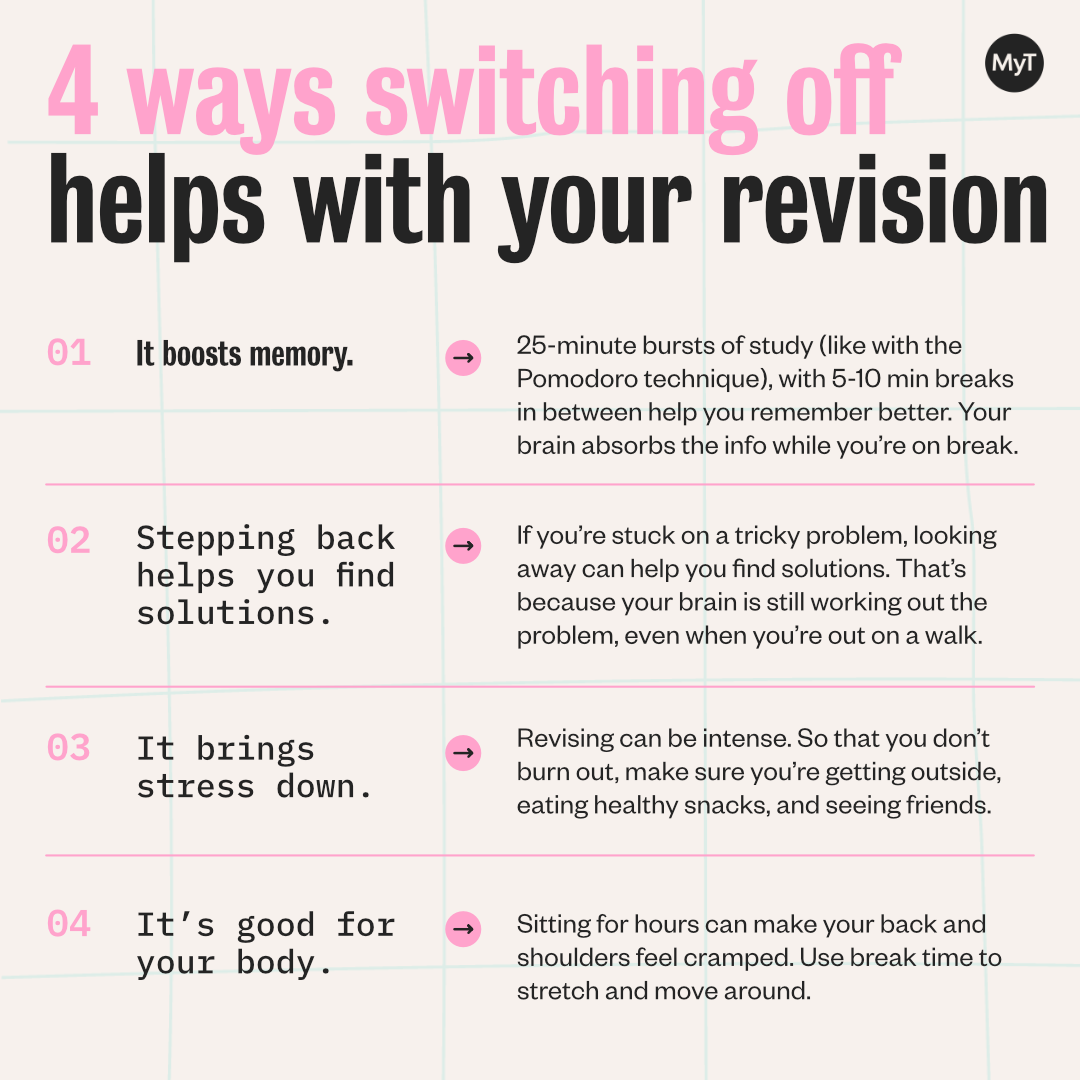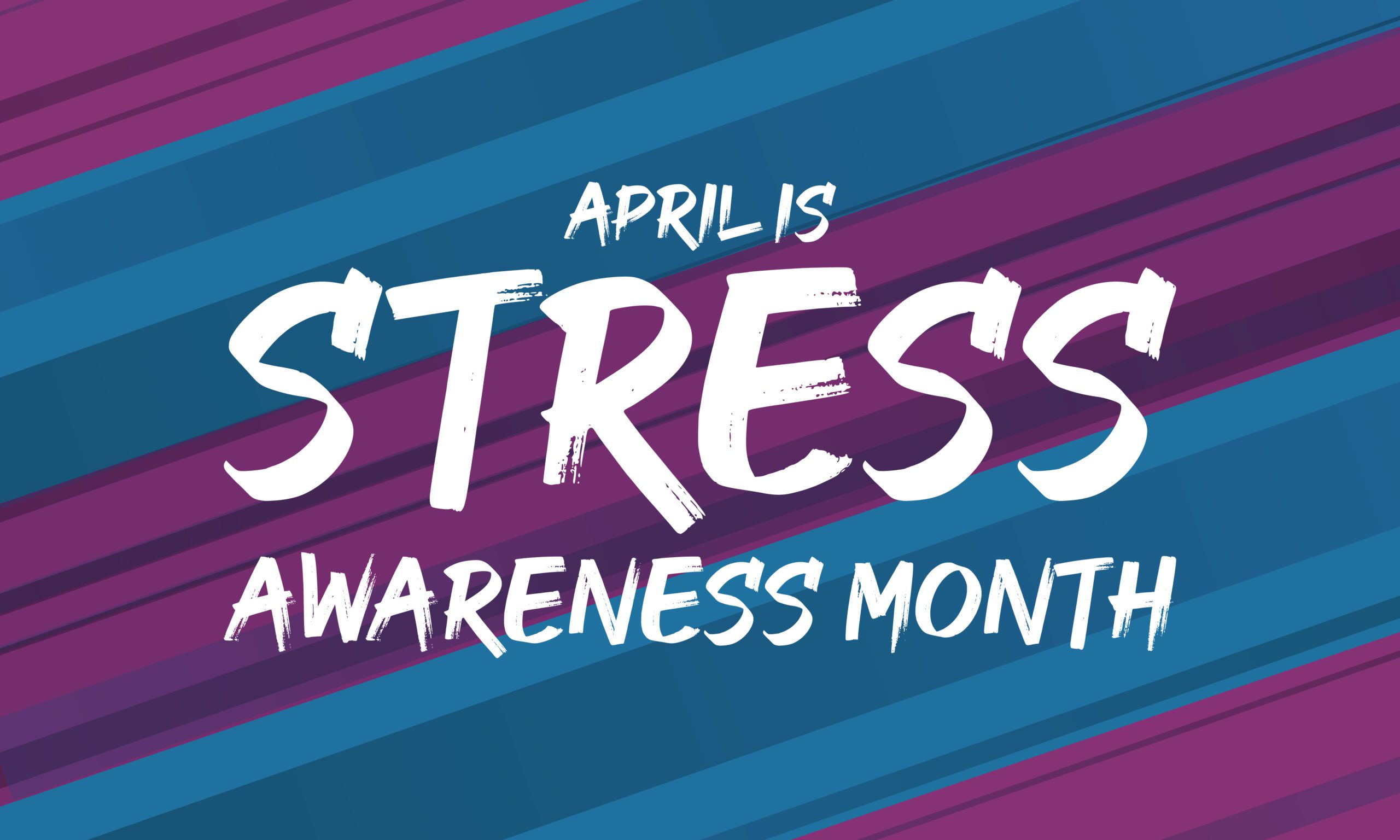
They’ve been hearing about exams for ages. So it’s no surprise that lots of teens are feeling overwhelmed by the time exam season rolls in. To help you spot burnout in your teen, we’ll go over 4 signs to look out for– plus 4 ways you can support them through it, so they can get back to feeling their best.
Signs of teen burnout
- They’re not sleeping or eating well.
- They’re a lot more irritable.
- They want to spend all their time alone.
- They’ve lost interest in things they normally enjoy.
1. They’re not sleeping or eating well.
Exam anxiety can have a negative knock-on effect when it comes to your teen’s physical health. Thoughts like, ‘I’m going to fail,’ or ‘I have to do well or I won’t get into a good uni,’ can keep them up at all hours. Sleep is so important to their wellbeing, so you want to nip their worries in the bud. As a parent, you’ll know the tell-tale signs of when they’re not getting enough sleep. Do they look tired? Are they falling asleep in class, or at strange times of the day? Are they more irritable than usual?
And when they’re stressed, their appetite can take a hit, too. Are they skipping meals? Leaving lots of food on their plate? Or, are they eating tons of junk food? Under-eating, and overeating are both red flags when it comes to their wellbeing–and it might mean they’re feeling overwhelmed.
2. They’re a lot more irritable.
If they’re lashing out or having meltdowns, they might be feeling the pressure. Teenage years are prickly anyway, with their brains going through lots of changes. But if you’re seeing a big difference in their mood during exam season, it could be a sign of burnout. They might have gaps in their learning, and they’re lashing out because they’re just not getting it. Or, they’re overworking because they’re worried they’re not good enough. Whatever the reason behind their stress– there’s a good chance they’ll take it out on those around them.
3. They want to spend all their time alone.

What makes spotting burnout trickier with teens is that they like to spend more time on their own anyway. But when they’re not seeing friends and keeping to themselves more than usual, it might be a sign that they’re having a hard time. There are behaviours you can look out for. Like if they’re lying in bed staring up at the ceiling, or at their screens for hours at a time– it’s a good idea to check-in to see what’s going on.
4. They’ve lost interest in things they normally enjoy.
Hobbies and interests are so important to your teen’s wellbeing. It helps keep them balanced. But if they’re pulling away from the things they love– like football practice or even just watching their favourite shows, it might be a sign they’re overworking.
How you can help them get through it
It’s completely normal for you to worry when your teen’s going through a stressful time. But there’s still lots you can do as a parent to help them along. Exam season is a bit like a marathon, and it takes regular self-care to make it to the finish line.
- Have regular chats to check in.
- Help them build down-time into their schedules.
- Give them advice on managing their screens.
- Reach out for support.
1. Have regular chats to check-in.

Having regular time together makes it easier for your teen to open up. Dr Louise Egan, a child psychologist, says it’s important to find out why your teen is working themselves so hard. Do they think they’re not good enough? Are they worried about what you think? Spending regular time with your teen means you can get a better picture on why they’re so anxious. ‘There’s no quick fix,’ Dr Egan says. But if you put your teen in the driver’s seat by asking them, ‘What can I do to help?’ you might be surprised by how they open up. And with lots of chats and encouragement, you can help them work out a more balanced relationship with their revision.
2. Help them build down-time into their schedules.
A revision timetable can help your teen to stay on top of things. It means they can relax too, since they’ve scheduled their study time. To make their day-to-day more balanced, they can slot in fun activities. Encourage them to include things like, ‘trip to the cinema’, or ‘catch-up with friends’ into their timetable. If they’re still stressed about spending time away from revision, let them know how breaks actually help their brain learn better.
Here’s something you can share with your overworking teen:

3. Give them advice on managing screen time.
Screen time is not all bad– in fact there are lots of helpful learning resources they can tap into while they’re revising. But, screens can have a negative effect on their wellbeing too, by getting in the way of sleep. And when they’re not sleeping well, it affects everything–from their mood, to how they study and learn. Encourage them to have a break from their screens 1-2 hours before bed. And if they just can’t part with their phone, have them change the settings to night time mode, so that the blue lights are at least switched off.
4. Reach out for support.
There are times when they just need a helping hand from an expert. Whether that’s with a tutor (if their anxiety comes from learning gaps), or with a healthcare professional– there are people and organizations here to help teens.
Here are a few good resources to tap into, as recommended by the NHS:
- Child and Adolescent Mental Health Services (CAMHS)
- Kooth which delivers psychological support for teens
- Mental health apps: Catch It, Blueice, Chill Panda
Of course, advice from experts is always handy, but you know better than anyone else if your child’s struggling. With a few of these tips plus your encouragement and support, your teen can get through exams feeling calm and confident.


